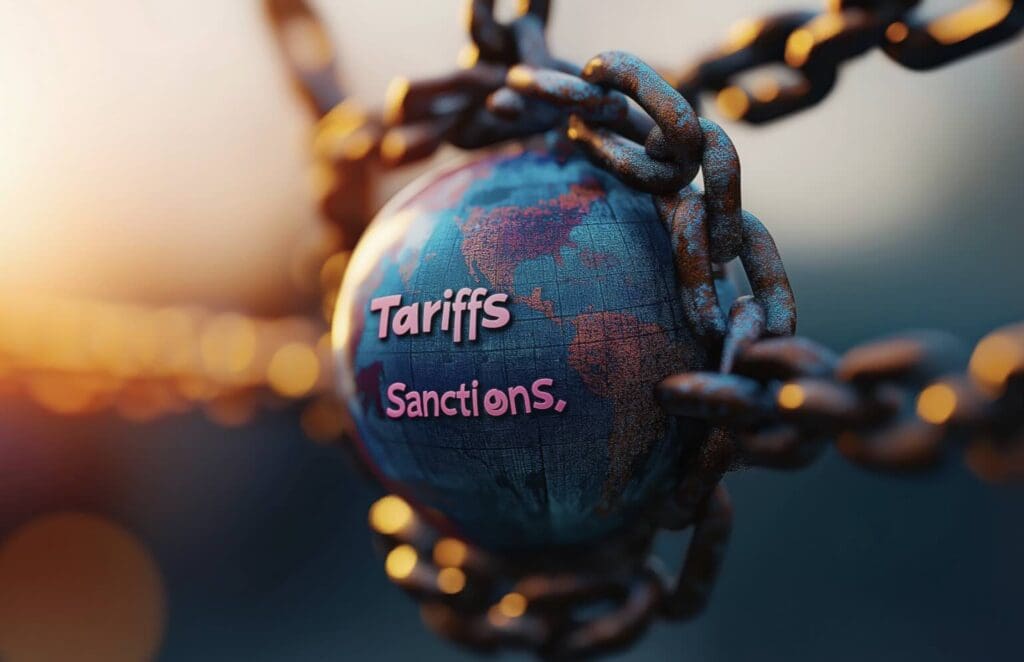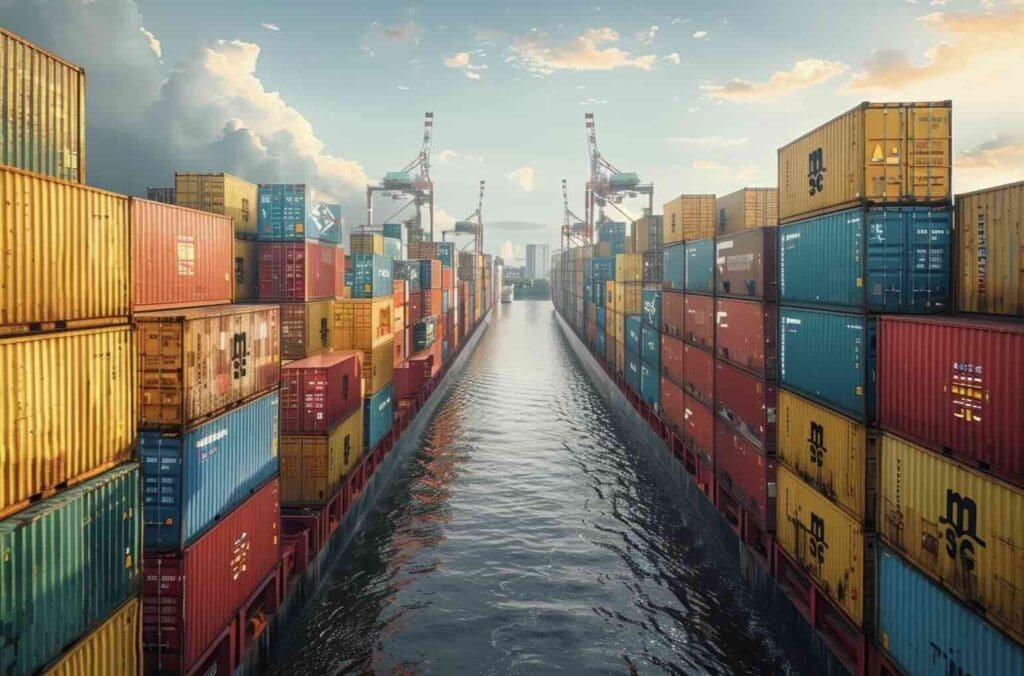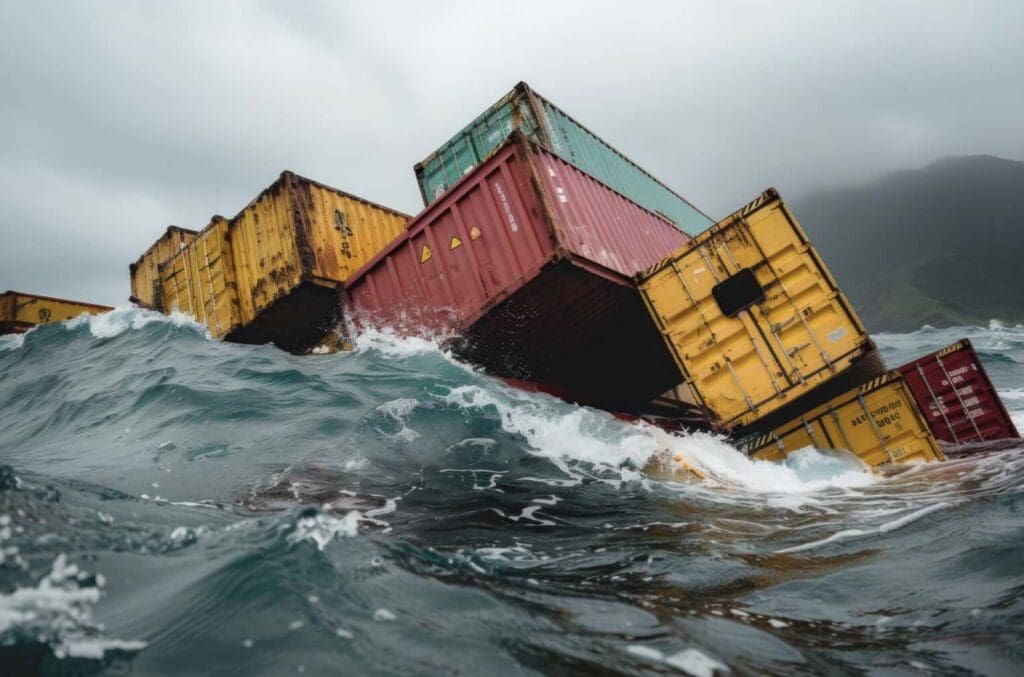The home decor industry is no stranger to the complexities of global trade. In an increasingly interconnected world, businesses rely on intricate global supply chains. However, these supply chains face growing disruptions due to protectionism, shifting trade policies, and geopolitical tensions. In particular, the United States and other nations are embracing tariffs and other mechanisms that disrupt the flow of goods, making it more challenging for companies to operate seamlessly.
At Mondoro, we understand the importance of effectively navigating these global trade challenges. Our Asian experience and commitment to reliability and innovation position us as a trusted partner for businesses seeking to adapt to an evolving trade landscape.
Table of Contents
- Current Global Trade Challenges in the Home Decor Industry
- 10 Strategies To Navigate Global Trade Challenges
- 1. Stay Informed About Trade Policies
- 2. Diversify Production Locations
- 3. Build Relationships with Reliable Partners
- 4. Invest in Supply Chain Transparency
- 5. Optimize Inventory Management
- 6. Focus on Sustainability
- 7. Negotiate Favorable Terms with Suppliers
- 8. Explore Trade Agreements
- 9. Embrace Technology for Efficiency
- 10. Prepare for the Unexpected
- How Mondoro Navigates Global Trade Challenges
- Why Navigating Global Trade Challenges Matters
- Final Thoughts
- Related Content
Current Global Trade Challenges in the Home Decor Industry
The global home decor industry is highly dependent on international trade. Materials, craftsmanship, and manufacturing are often sourced from multiple countries, making the supply chain vulnerable to external factors.
Here are some of the significant trade challenges impacting the industry:

Protectionism and Tariffs:
Countries like the United States are adopting protectionist policies to safeguard domestic industries. One such policy is imposing tariffs on imported goods, which can significantly increase businesses’ costs.
Geopolitical Tensions:
Trade wars, such as the ongoing tensions between the U.S. and China, disrupt established trade routes and create uncertainty for manufacturers and suppliers.
Supply Chain Disruptions:
The COVID-19 pandemic highlighted the fragility of global supply chains, with delays, shortages, and increased shipping costs becoming the norm.
Regulatory Changes:
Changes in trade agreements and import/export regulations require businesses to adapt to new rules constantly.
Rising Costs:
Inflation, higher shipping fees, and fluctuating currency values add financial strain to companies operating in global markets.
Given these challenges, businesses in the home decor industry must adopt proactive strategies to safeguard their operations.

10 Strategies To Navigate Global Trade Challenges
As we explore the current global trade issues affecting the home decor industry, we will provide you with 10 actionable strategies for businesses to stay resilient and competitive.
1. Stay Informed About Trade Policies
The first step in navigating global trade challenges is to stay updated on trade policies that can affect your business. Protectionist measures, tariffs, and regulatory changes can significantly impact costs and operations.
For example, recent U.S. tariffs on Chinese goods have forced many companies to rethink their sourcing strategies. By monitoring these developments, businesses can anticipate changes and plan accordingly.
At Mondoro, we closely monitor global trade policies to ensure our clients are informed and prepared for potential disruptions.
2. Diversify Production Locations
Relying on a single country or region for production can leave businesses vulnerable to policy changes, tariffs, or other trade barriers. Diversifying production locations is a smart strategy to mitigate risk.
For instance:
- Establishing production facilities in multiple countries can help avoid tariffs imposed on a specific region.
- Diversifying your supply base ensures continuity in case of disruptions.
Mondoro can assist clients in identifying alternative production sites across Asia, providing flexibility and resilience in the face of trade challenges.
3. Build Relationships with Reliable Partners
In uncertain times, having reliable partners is crucial. A trusted partner can help navigate logistical challenges, ensure product quality, and provide insights into regional trade dynamics.
Mondoro prides itself on being a dependable partner for businesses in the home decor industry. With years of experience in Asia, we offer a robust network of suppliers and manufacturers, ensuring our clients’ operations run smoothly.
4. Invest in Supply Chain Transparency
A transparent supply chain allows businesses to identify potential risks and inefficiencies. Tools like real-time tracking and data analytics can help you monitor shipments, anticipate delays, and optimize logistics.
By working with Mondoro, clients benefit from our emphasis on supply chain visibility, ensuring they can adapt quickly to unforeseen challenges.
5. Optimize Inventory Management
Tariffs and trade disruptions can lead to unpredictable lead times and increased costs. To mitigate these risks, businesses should optimize their inventory management practices by:
- Maintaining safety stock to buffer against delays.
- Using AI-powered tools to forecast demand and adjust inventory levels accordingly.
Efficient inventory management helps businesses reduce waste, cut costs, and improve their resilience to supply chain disruptions.
6. Focus on Sustainability
Sustainability is becoming a critical consideration in global trade. Many consumers and governments prioritize eco-friendly products, and trade policies increasingly reflect this shift.
Adopting sustainable practices can improve your brand reputation and help you comply with evolving regulations. Mondoro emphasizes sustainability in our product designs and manufacturing processes, helping clients meet these growing demands.
7. Negotiate Favorable Terms with Suppliers
Strong relationships with suppliers can provide businesses with leverage to negotiate favorable terms, such as flexible payment schedules or reduced costs. In times of uncertainty, these agreements can help alleviate financial strain.
Mondoro works closely with suppliers across Asia to ensure our clients receive competitive pricing and reliable service.
8. Explore Trade Agreements
Many countries have trade agreements that reduce tariffs or provide other benefits to businesses. By leveraging these agreements, companies can minimize costs and maintain competitiveness.
For example, free trade agreements in Southeast Asia can offer cost-effective production and export opportunities. Mondoro can help clients navigate these agreements to maximize their benefits.
9. Embrace Technology for Efficiency
Technology can play a key role in overcoming trade challenges. Technology enables businesses to operate more efficiently and adapt to disruptions, from AI-powered demand forecasting to blockchain-based supply chain tracking.
Mondoro integrates advanced tools into our operations, ensuring our clients benefit from cutting-edge solutions for managing global trade complexities.

10. Prepare for the Unexpected
Finally, businesses must adopt a proactive mindset and prepare for the unexpected. This includes:
- Conducting regular risk assessments to identify vulnerabilities.
- Developing contingency plans for potential disruptions.
- Building financial reserves to absorb sudden costs.
At Mondoro, we prioritize risk management to help our clients confidently navigate uncertainties.
How Mondoro Navigates Global Trade Challenges
At Mondoro, we’ve successfully adapted to the evolving global trade landscape by implementing many of the abovementioned strategies. Here’s how we ensure seamless operations for our clients:
- Regional Expertise: With deep knowledge of the Asian market, we help clients identify reliable suppliers and navigate regional trade policies.
- Diversified Operations: We offer production options in multiple countries, reducing reliance on any single region.
- Sustainable Practices: Our commitment to sustainability aligns with global trends and consumer expectations.
- Technology Integration: From real-time supply chain tracking to AI-powered insights, we leverage technology to improve efficiency.
- Client-Centric Approach: We work closely with our clients to understand their needs and tailor our services to overcome their unique challenges.
Why Navigating Global Trade Challenges Matters
Global trade challenges are not just operational issues—they have far-reaching implications for businesses, consumers, and economies. By navigating these challenges effectively, companies can:
- Maintain competitive pricing despite tariffs and other barriers.
- Ensure timely delivery of high-quality products.
- Build trust with customers by demonstrating resilience and reliability.
- Contribute to a more stable and sustainable global economy.
Overcoming trade hurdles is critical to success in the home decor industry, where aesthetics, quality, and affordability are paramount.
Final Thoughts
The global trade landscape is becoming increasingly complex, but with the right strategies, businesses in the home decor industry can thrive. By staying informed, diversifying operations, and building strong partnerships, companies can navigate protectionism, tariffs, and other challenges while delivering value to their customers.
At Mondoro, we are committed to helping our clients overcome these obstacles and achieve their goals. With our expertise, innovation, and dedication to excellence, we’re confident in our ability to support businesses through the evolving global trade environment.
The challenges are significant, but so are the opportunities. Adapting and evolving, the home decor industry can flourish in a changing world.
Find out more about how Mondoro can help you create, develop, and manufacture excellent home decor and home furniture products – don’t hesitate to contact me, Anita. Check out my email by clicking here or become a part of our community and join our newsletter by clicking here.
Mondoro gives out a FREE Lookbook to anyone interested. You can receive a copy of our latest Lookbook by clicking here.
Listen to our Podcast called Global Trade Gal. You can find it on all major podcast platforms. Try out to listen to one of our podcasts by clicking here.
Subscribe to our Mondoro Company Limited YouTube Channel with great videos and information by clicking here.
Related Content
6 Essential Logistics Competencies For Supply Chain Experts
In our contemporary world, we often overlook the complexities behind the availability of our favorite items in shopping centers. This seamless shopping experience is attributed to robust logistical systems and professionals equipped with specialized logistics skills. Recent times have underscored the significance of effective logistics management, which enhances an organization’s profitability and competitive edge and occupies a notable place in financial statements.
You can learn more by reading our blog 6 Essential Logistics Competencies For Supply Chain Experts by clicking here.
15 Core Competencies In Supply Chain Management Explored
Supply chain management has evolved beyond its traditional role as merely the backend function of a business. Today, it stands prominently at the forefront of enterprises globally.
Consequently, every supply chain manager must arm themselves with core competencies. This arsenal should encompass a global viewpoint, stellar communication prowess, decisive leadership, impeccable ethics, and sound financial acumen. The role demands more than just monitoring inflows and outflows; a modern supply chain manager must holistically understand and strategically oversee every facet of a company or corporation.
You can learn more by reading 15 Core Competencies In Supply Chain Management Explored by clicking here.
What Are The 5 Elements Of Supply Chain Management?
Each of these five supply chain elements, such as planning, sourcing raw materials, delivery, manufacturing, and returns or complaints, is pivotal in ensuring your supply chain operates efficiently and effectively. Every supply chain manager’s objective should be to achieve efficiency and effectiveness. By grasping these five components, you are poised to attain this objective.
You can learn more by reading What Are The 5 Elements Of Supply Chain Management? by clicking here.

